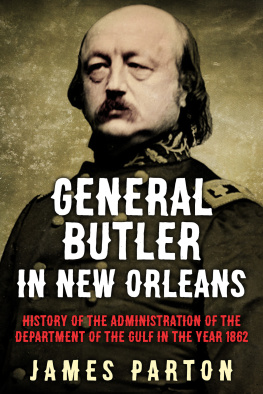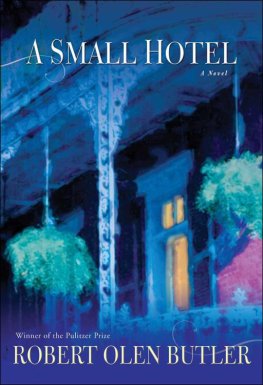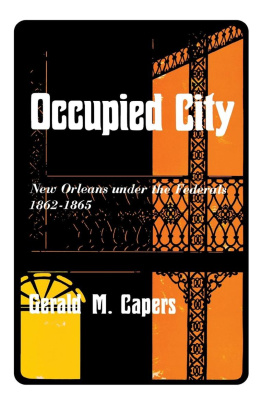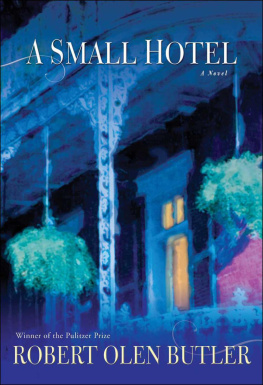General Butler in New Orleans
History of the Administration of the Department of The Gulf in the Year 1862: With an account of the capture of New Orleans, and a sketch of the previous career of the General, Civil and Military.
James Parton
James Parton 1864
James Parton has asserted his rights under the Copyright, Design and Patents Act, 1988, to be identified as the author of this work.
First published in 1864 by Mason Brothers.
This edition published in 2017 by Endeavour Press Ltd.
WHATEVER THEY CALL HIM, WHAT CARE I! ARISTOCRAT, DEMOCRAT, AUTOCRAT, ONE WHO CAN RULE AND DARE NOT LIE. Maud
Table of Contents
PREFACE.
IT can not be necessary to apologize for an attempt to relate the history of the most remarkable episode of the war, respecting which opinions so violently contradictory are expressed, both at home and abroad. The vindication of the country itself seems to require that a policy should, at least, be understood, which the country has accepted as just, wise, and humane, and which the enemies of the country, foreign and domestic, denounce as arbitrary, savage, and brutal.
It is, however, of the first necessity to state how this book came to be written, and from what sources its contents have been derived.
In common with the other devotees of the Union and the Flag, I had watched the proceedings of General Butler in Louisiana with interest and approval; and shared also the indignation with which they regarded the perverse misinterpretation put upon his measures by the faction which has involved the Southern States in ruin, and by their neutral allies abroad.
Upon the return of General Butler to the North, I wrote to him, saying that I should like to write an account of his administration of the Department of the Gulf, as well as a slighter sketch of the previous military career of a man who, wherever he had been employed, has shown an ability equal to the occasion; but that this could not be done, and ought not to be attempted, without his consent and co-operation.
To this, the general thus replied:
I am too much flattered by your request, and will endeavor to give you every assistance in the direction you mention. My letter and order books shall be at your disposal, as well as the official and unofficial correspondence directed to me. If I can, by personal conversation, elucidate many matters wherein otherwise history might be a perversion of the truth, I will be at your service.
One thing I beg shall be understood between us, however (as I have no doubt it would have been without this paragraph), that while I will furnish you with every possible facility to learn everything done by me in New Orleans and elsewhere, it will be upon the express condition that you shall report it in precisely the manner you may choose, without the slightest sense of obligation aught to extenuate because of the source from which you derive the material of your work; and farther, that no sense of delicacy of position, in relation to myself, shall interfere with the closest investigation of every act alleged to have been done or permitted by me. I will only ask that upon all matters I may have the privilege of presenting to your mind the documentary and other evidences of the fact.
I had not the pleasure of General Butlers personal acquaintance, but our correspondence ended with my going to Lowell, where I lived for a considerable time in the generals own house, and received from him, from his staff, and from Mrs. Butler, every kind of aid they could render for the work proposed. We talked ten hours a day, and lived immersed in the multitudinous papers and letters relating to the events which have excited so much controversy. The general placed at my disposal the whole of those papers and letters, besides giving the most valuable verbal elucidations, and relating many anecdotes previously unrecorded.
Respecting the manner in which the material should be used, he did not then, and has not since, made a single suggestion of any kind. He left me perfectly free in every respect. Nor has he seen a line of the manuscript, nor asked a question about it.
Therefore, while the whole value and the greater part of the interest of this volume are due to the aid afforded by General Butler, he is not to be held responsible for anything in it except his own writings. If I have misunderstood or misinterpreted au y event or person, or used the papers injudiciously, at my door let all the blame be laid, for it is wholly my fault.
And farther: I must explicitly declare, that if I have been led to form an unfavorable opinion of the conduct of any person mentioned in these pages, I did not derive that ill opinion from any thing said by him. So far as his own conduct is concerned, General Butler is one of the most candid of men; and he is particularly so with regard to any of his acts which have brought obloquy upon him, or which he may himself regret. It is foreign to his nature to conceal or qualify or justify his own conduct. But with regard to the conduct of others, and especially of his superiors in the government, he is reticent and charitable. To be plain: I have never heard him say a word respecting the persons who are supposed to have thwarted him, or to have been instrumental in his recall, which might not be repeated in their hearing without giving them offense.
I have been solicitous to preserve as much as possible of the remarkable writings of General Butler. He was always at bay in Louisiana. Assailed by consuls, neutrals, and traitors, whose misrepresentations found their way to Washington, he was continually obliged to defend himself by relating the truth. With what point, humor, and cogency he would do this, the public do not need to be told. Of the three great writers of the war General Butler, President Lincoln, and Mr. Wilkes, of the Spirit of the Times he had the advantage of a position entirely unique in the history of warfare, and his writings are instinct both with his own originality and the originality of his position. As Mr. Richard Grant White has observed: General Butlers orders and official correspondence at New Orleans, for hitting the nail square upon the head, and clinching it with a twist of humor, have not been surpassed by any writings of their kind. By reading them, the man weary of the grand style, or fretted with the flippancy of the familiar, may obtain real mental refreshment. These writings, too, contain the heart of the matter. If the United States is right in this great contest, the argument of those compositions is sound, and the measures which they explain were just. If the United States is in the wrong, those writings are fallacious, and those measures were unjustifiable. In word and deed General Butler is, at least, logical.
I have related, at some length, the civil and military career of General Butler previous to the capture of New Orleans. This was chiefly done, that the reader might judge whether such a man as General Butler was before he went to New Orleans was likely to do such things there as the enemies of his country say he did.
It is of the most momentous importance to the future of the United States, that whatever is written respecting this war should be written truly. Upon the class of writers it chiefly devolves to garner up, for our future warning, solace, and instruction, the experience gained by such an appalling expenditure of life and of the means of living. Let us leave all lying, all delusion, all boasting, all unworthy suppressions, to the malignants who know no better. For us , the TRUTH, though it blast us. We owe it to the heroic dead, who died that we might more worthily live. We owe it to the living, who are so anxious and so perplexed, through the incompleteness of their knowledge. We owe it to the inconceivable multitude of our brethren and fellow-citizens unborn.








